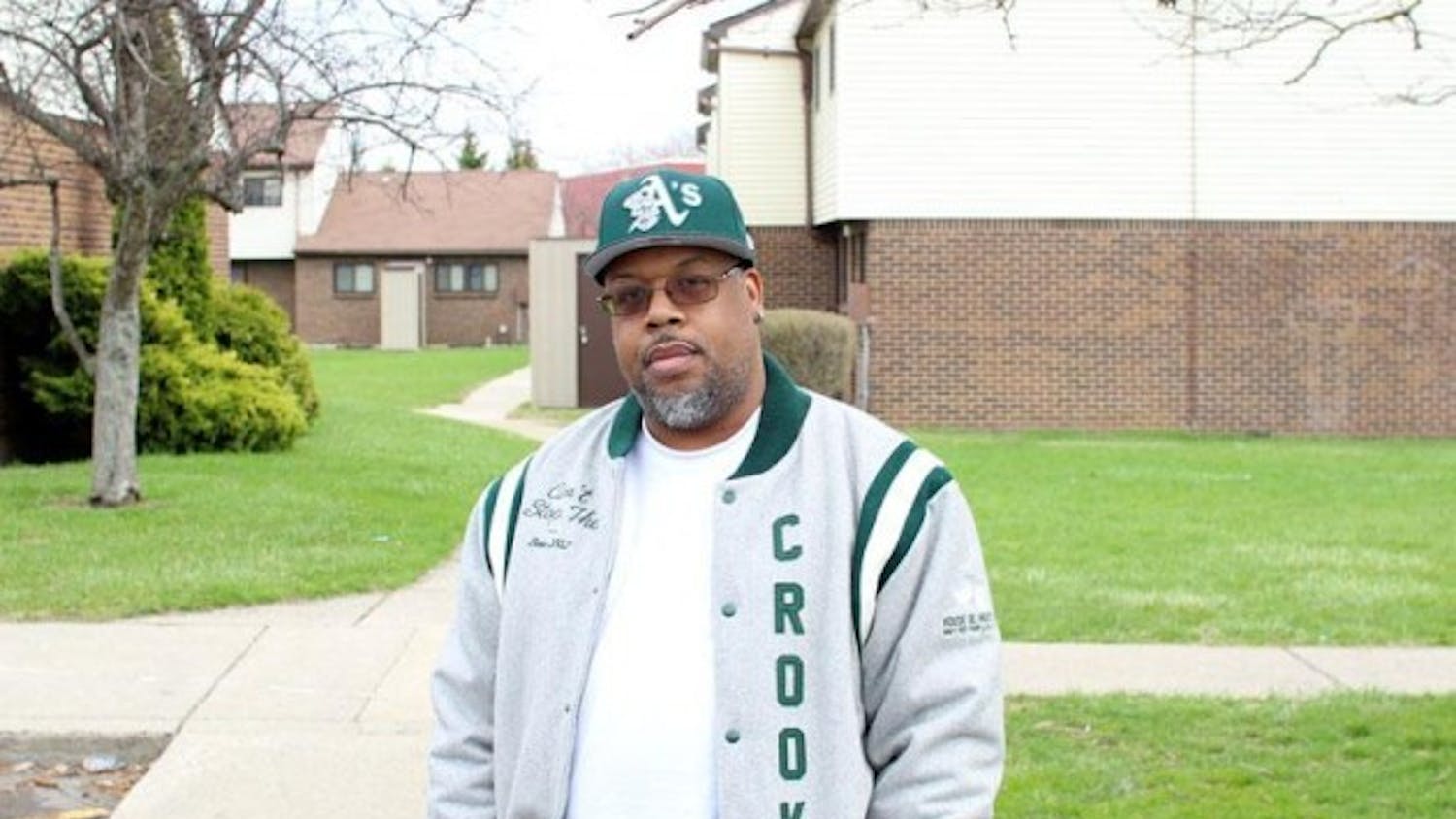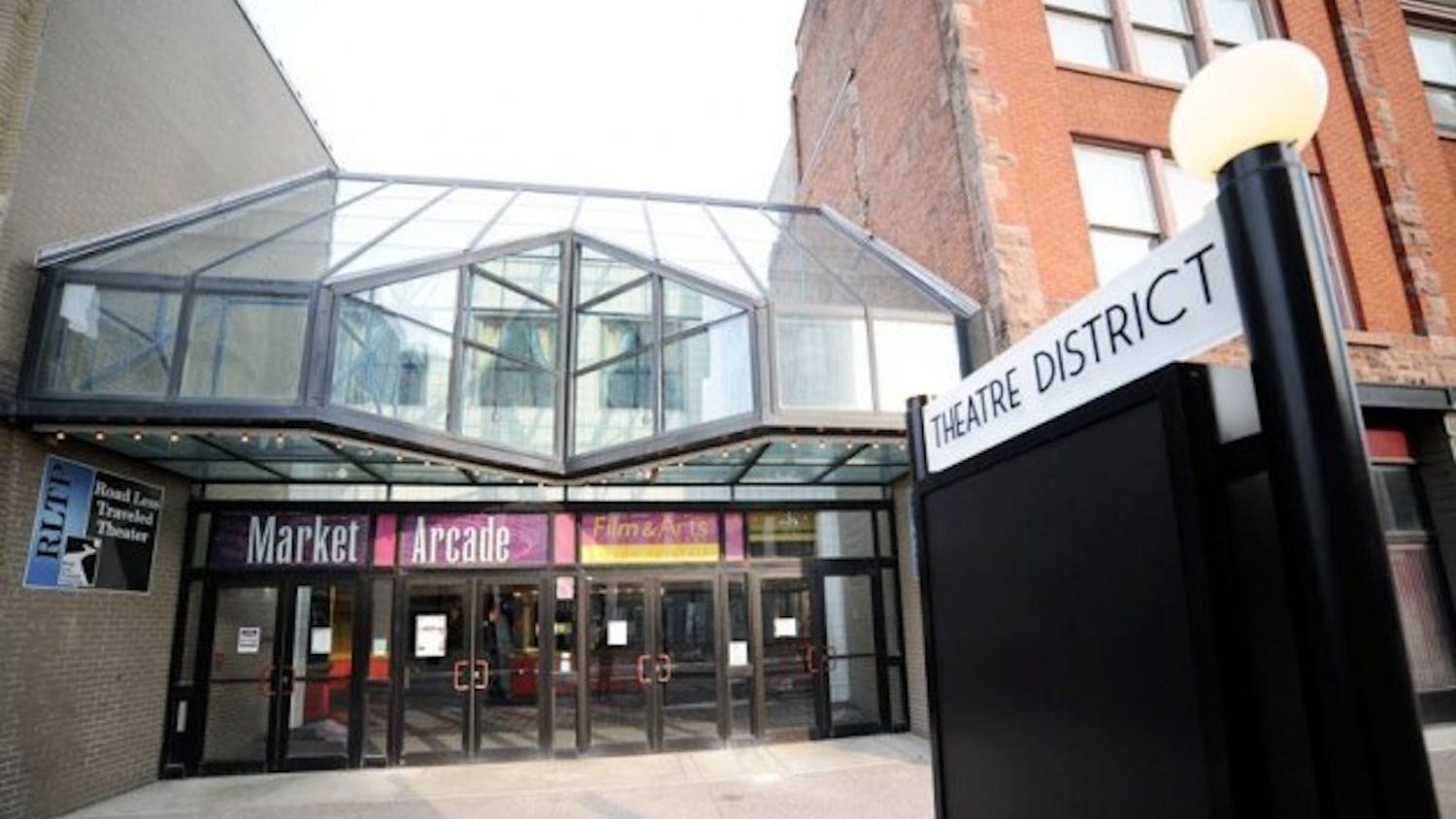President Satish Tripathi closed the university's controversial shale institute on Monday, Nov. 19.
The announcement came after the continuing criticism of the Shale Resources and Society Institute's (SRSI) funding, founding and governance. Tripathi informed faculty in an email. His letter noted the "cloud of uncertainty" that looms over SRSI and discussed the future of fracking research on campus.
For members of the UB Coalition for Leading Ethically in Academic Research (UBCLEAR) and the Public Accountability Initiative (PAI), a local watchdog organization, the shutdown is a victory. PAI issued a report that pointed out SRSI's flaws, and that report fueled UBCLEAR's objections and protest of the institute.
But Bruce Pitman, the dean of the College of Arts and Sciences, continues to be surprised by the backlash that led up to closing the institute.
"We have had an ongoing examination of issues - policies, practices - nothing was found to be wrong," Pitman said. "Nevertheless, there is continuing onslaught of allegations without any backing that have just made it impossible for the institute to do what it was designed to do."
Pitman said for about a week before the decision was made,Provost Charles Zukoski and Vice President for Research Alexander Cartwright had a series of conversations with the geology department, the SRSI advisory board and the institute's co-directors as a "detailed fact finding to really understand what was going on." Pitman was officially informed of the decision to close the institute on the day it was made public.
Ultimately, the president made the decision, Pitman said, but he and Zukoski stand behind Tripathi.
Members of UBCLEAR are thrilled with the outcome.
"It's really good news," said James Holstun, UBCLEAR chair and English professor. "It's a sign that the people of New York and the SUNY Trustees want their public university to remain public and not a mouthpiece for secret corperate money."
Holstun and members of UBCLEAR think SRSI likely received undisclosed industry funding - something Pitman and UB administration adamantly deny.
The SUNY Board of Trustees called for an investigation of the institute in September, and UB responded by sending the members a report detailing the founding of the institute. Pitman said SUNY had no input in the decision to close the institute.
SUNY Administration and the Board of Trustees support UB's decision to close the institute because of the questions surrounding it, according to an emailed statement by David Doyle, the SUNY director of communications.
"Public trust must be earned and we are confident that this decision will make UB a stronger institution, and going forward its important research endeavors will be able to proceed with clear guidelines that ensure credible academic outcomes," Doyle said. The trustees reserved further comment until their formal review is completed. Doyle said it's anticipated the trustees will discuss their findings in a future public meeting.
Their next meeting is Dec. 4.
Holstun feels UB didn't start taking the criticisms seriously until SUNY got involved.
Board of Trustees Chair H. Carl McCall contacted Holstun following the institute's closure and commended UBCLEAR for its "advocacy for transparency and integrity for research activity at the University at Buffalo."
SRSI was created in April 2012. On May 15, it produced its first report, which was pro-fracking. The report was scrutinized nationally and on campus because of allegations of "junk science" and ties between the authors of the report and the gas industry. This was made clear by PAI's report.
Robert Galbraith, a research analyst at PAI and a UB law student, was surprised the institute closed, especially after how passionately the university defended it under "academic freedom."
"I don't know how confident [PAI was that] the school would close down the institute," Galbraith said. "We were certainly hopeful we were going to have some sort of effect in discovering these connections and this pro-industry institute."
Galbraith was pleased to see Tripathi's letter stated: "Conflicts - both actual and perceived - can arise between sources of research funding and expectations of independence when reporting research results."
That was a point PAI was "trying to drive home" with its investigation, Galbraith said.
UBCLEAR has been calling to shut down the institute since controversy first arose. The group has gotten over 10,000 petition signatures calling for the institute's closure. Now the petition is unnecessary, but it shows the support garnered against SRSI.
"The institute lacks sufficient faculty presence in fields associated with energy production from shale for the institute to meet its stated mission," Tripathi wrote in the letter.
Pitman had previously spoken about the high qualifications of co-directors John Martin and Robert Jacobi due to their experience in the field. But he explained the issue was the amount of time both co-directors could put into the institute; Martin was a part-time director and Jacobi reduced his full-time faculty position to a fraction, Pitman said.
"To leverage our university's considerable faculty expertise in the area of energy and the environment and to address these issues with appropriate breadth and complexity, UB will establish a comprehensive program of scholarship and education that addresses issues in this broadly defined area of research," Triapthi said in his letter.
Holstun feels the comprehensive plan, which Zukoski will be in charge of, could be beneficial. Holstun was pleased to see the environmental sciences were mentioned. He feels they have been "completely ignored by the institute since its founding."
Pitman said the hope is the program will get faculty talking about the things that need to be addressed in the complex topics of sustainability, water and energy. He also said he is still trying to process some of what has happened regarding the institute.
"I never expected the level of backlash that is based is on statements of 'Pitman said this, but I don't believe that,' or 'Pitman said this, but I believe this other thing happened,'" he said. "I did not appreciate that intensity, but we learn."
Pitman said he finds the level of the mix of politics and scholarship revolving around the institute "disheartening."
Now that their goal has been completed, Holstun is unsure if UBCLEAR will continue to exist. "We have to have a meeting and talk about that. We don't know yet. It may very well," he said.
He thinks UB needs to make up for lost time and really address some of the problems it's run into.
In the time since SRSI's closure, Holstun's inbox was filled with messages of congratulations. He said the most warming thing in this whole process is how much people love SUNY. He thinks the closing of the institute is an "expression of people's love for their university."
Email: news@ubspectrum.com





